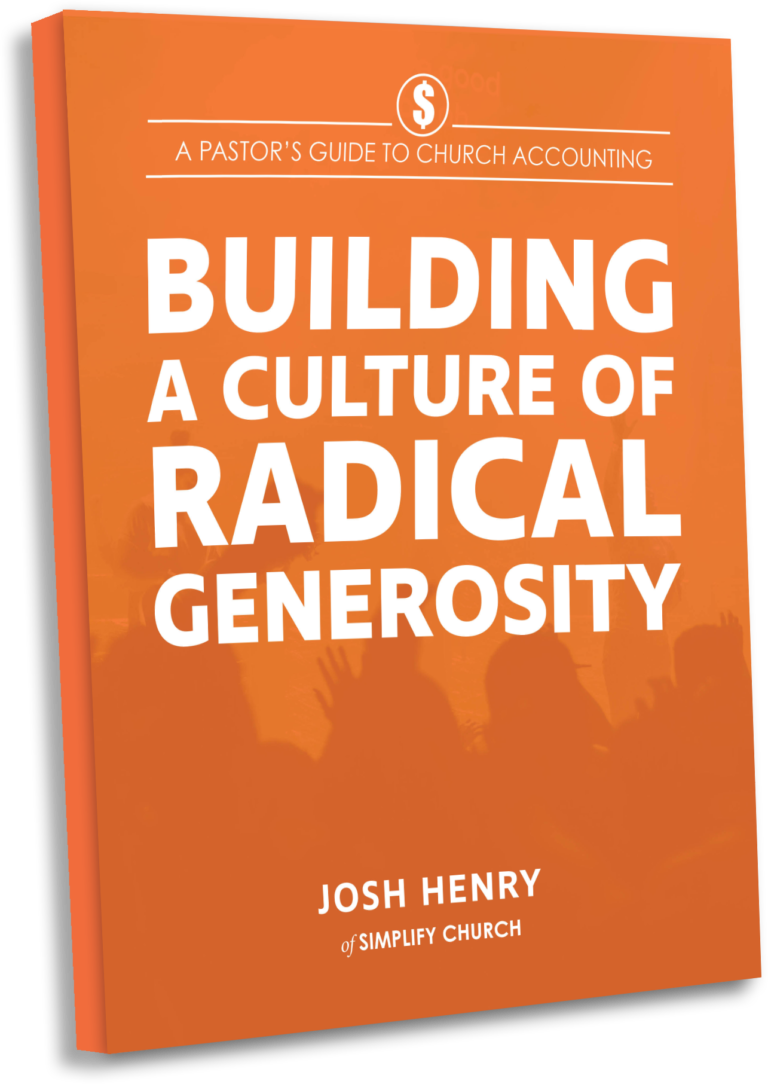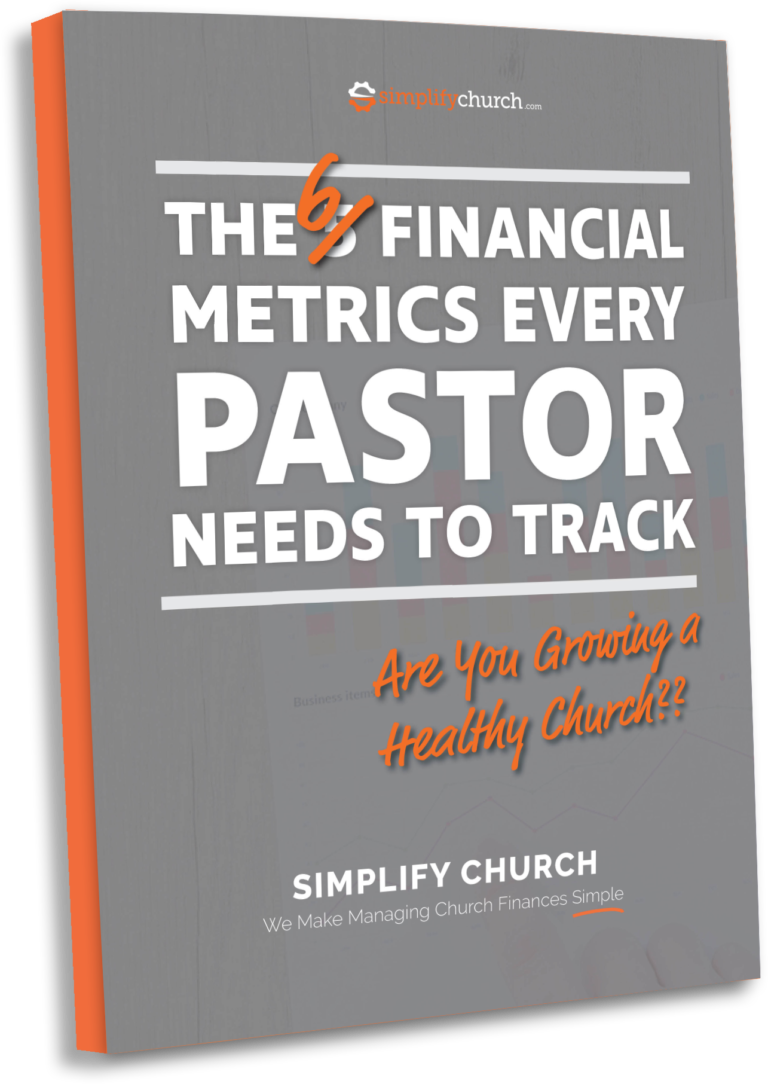IS THE ECONOMY AFFECTING YOUR CHURCH?
Turn on the news and you’ll hear plenty about how the price of everything going up – housing, cars, food, gas. Or simply head to nearest gas station or grocery store and look at the prices on the shelves. Economic inflation used be something we learned about in history class. Now we’re seeing it happen in real time.
Inflation is currently affecting everyone and everything, including churches. As everything continues to cost more money, paychecks are not reaching as far as they used to. So what does this mean for you and for your church? How can your church deal with the impact of inflation? Is the decline in your weekly giving numbers a reflection of an average summer giving slump or an indication of a bigger problem?
These are all valid questions to ask. They are not meant to alarm you, but to equip you to lead and shepherd your church more effectively. So today, I want to unpack a few things you can do as pastor to lead your church through a time of economic uncertainty.
SHOULD YOU BE WORRIED ABOUT THE IMPACT OF INFLATION ON YOUR CHURCH?
While the current economic crisis is new, economic uncertainty is not. After all, we’ve just come out from two years of unprecedented change due to living through a world-wide pandemic. Here at Simplify Church, we’ve done our best to provide you with tools and resources to navigate your church finances through the pandemic.
You can read more about managing your church budget in a crisis, 3 steps to survive the 2021 church giving slump, and how to build a post-pandemic church budget.
These are foundational principles that your church should operate by. There are practical things you can do to stay on top of your church finances and ensure that you are being a good steward of the resources entrusted to your church.
If you are noticing a dip in your weekly tithes and offerings, you may need to sit down and re-think your budget allocations for the year. We’ll have another free training coming up in the next several weeks to walk you through how to do just that.
But I think something that can get lost in our efforts to be good stewards of church finances and manage money and resources effectively is the need for pastors to talk to their congregations about what is happening in our economy and encourage giving in church.
HOW CAN YOU ENCOURAGE GIVING IN CHURCH?
Last month, I shared six things you can do to increase church giving in 2022. I also recently shared videos on our Facebook page about common objections people have for why they don’t give and how to overcome them. In this article, I want to focus on how we can specifically encourage giving in times of economic uncertainty.
Remind people that even in the midst of uncertainty, God remains in control
Yes, things can feel out of control. Yes, we might not know how things will play out. But we have a choice to walk in fear or walk by faith.
Nothing surprises God. In all of history God has been in complete control and His way is perfect. Even when we don’t see how things are going to work out, God has a perfect plan that will be completed regardless of our input. As Matthew 6:28-32 reminds us, that our heavenly Father knows what we need.
When we’re in the midst of the uncertainty, it can be difficult to see the way out. It’s equally as difficult to share with someone the fact that God has the plan. But nonetheless, it’s our role as pastors to remind people of this fact.
One way to encourage giving in economic uncertainty is to remind people that God is in control.
Remind people that God’s commands haven’t changed
One of the biggest objections to giving in the church is a lack of understanding of how and why we give. People want to know, what does the Bible say about giving in the church? Why is giving to the church important? Does tithing mean giving to the church? Why should I give to the church? How much should I be giving to my church? Does it matter how much I give? Can I just give when I happen to have excess cash with me?
While our circumstances might change, the truth of God’s word and his commands for us do not.
As pastor, you must communicate both what God has instructed us to do and why those commands are not dependent on our current circumstances. God spoke through His word thousands of years ago in a time that was different than we have now. But even then, he was in control and was working through His perfect way.
God has given us everything. And He has called us to give back to him the first fruits of our labor. Not the excess or leftovers. Or in times of plenty. If the economy was good. If you had a bumper crop. We give back because He first gave to us. Regardless of our circumstances or current situation.
It is challenging for some people to give when they are facing bills and notices for payment in the mail but the fact remains, God is good and He provides.
Remind people that God rewards faithfulness
I am not saying that because someone gives, God will reward them with health and wealth. However, it is clear that God loves a cheerful giver (2 Corinthians 9:7). God hasn’t called us to give in a legalistic manner, but rather He looks at the heart and the intent of the gift.
If a person remains faithful to God and gives because they love the Lord and know that’s a step of spiritual development for them, it has been shown time and time again that God responds to that person in ways they may never have imagined.
Cultivate a heart of generosity at your church
One of the most important things you can do as pastor is talk about the how and why of giving and foster a heart of generosity in your congregation. When we don’t want to think about or talk about giving, it often comes from a place of fear.
If you approach giving out of fear or obligation, that’s the message that will be communicated. And that message is not compelling. A heart of generosity is not birthed from a place of fear, but out of trust and joy in following Christ. What is truly needed is not a five-step program to get people to give more, but a complete identity shift; a change in how we define and talk about generosity.
If you are ready to stop focusing on an uncertain future and start cultivating a culture of generosity in your church, regardless of economic circumstances, then download our free guide to Building a Culture of Radical Generosity in your church.
Learn practical steps to begin building a culture that transforms the way your congregation thinks about money.
HOW TO LEAD YOUR CHURCH IN TIMES OF ECONOMIC UNCERTAINTY
Remind yourself of these same things.
While it’s tough to see the end in sight in times of uncertainty, we can remember that God continues to be faithful. These times are not new to him. We need only remember to stay the course and encourage people to lean into the Giver of Life.
Pastor, how will you use this economic uncertainty to make much of Jesus?





